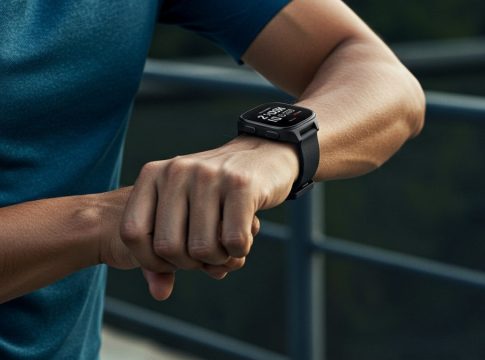The Hidden Drawbacks of Fitness Trackers: What You Need to Know
Fitness trackers have become ubiquitous in our quest for health and well-being. These devices are not only a great way to monitor your heart rate and activity levels but also encourage you to stay active. However, before you strap one on, it’s essential to consider some overlooked drawbacks of using these devices.
1. Anxiety and Obsession: The Double-Edged Sword
While fitness trackers can motivate you to achieve your fitness goals, they can also lead to increased stress and anxiety. If you find yourself obsessively checking step counts, measuring every calorie, or punishing yourself for missed goals, it’s time for a reality check.
Key Insight: The pressure to meet daily targets can morph into an unhealthy fixation. It’s important to remember that missing a day at the gym doesn’t define your fitness journey.
Tip for Beginners: Focus on progress rather than perfection. Aim for consistency rather than constantly striving for the next goal.
2. A False Sense of Security: More Than Just Numbers
A fitness tracker can provide a comforting illusion of health. A normal heart rate reading may offer peace of mind, but it’s crucial to understand that these figures don’t paint a complete picture of your overall health.
Expert Advice: Don’t let your tracker substitute for professional medical advice. Regular check-ups are essential for catching any hidden health issues that your device might miss.
For Busy Professionals: Don’t rely solely on your tracker. Use it as a supplement to, not a replacement for, traditional health assessments.
3. Data Privacy: Protecting Your Personal Information
One significant concern surrounding fitness trackers is data privacy. These devices collect sensitive health information, from heart rates to sleep patterns, making them vulnerable to breaches.
What You Can Do: Always review the privacy settings of your fitness app and use strong, unique passwords. Not all applications have robust encryption, so protecting your data is paramount.
For Fitness Enthusiasts: Stay informed. Regularly check for updates on privacy policies to ensure your data remains secure.
Conclusion: Balance is Key
Despite their drawbacks, fitness trackers can be a valuable asset in your health journey when used wisely. Awareness is crucial; understanding both the benefits and limitations of these devices allows you to make informed choices.
Key Takeaways:
- Use fitness trackers to inspire but avoid letting them control your mindset.
- Keep regular medical checkups part of your routine, irrespective of your tracker.
- Safeguard your data by utilizing app privacy settings and secure passwords.
Ultimately, your health is a multifaceted journey. Embrace technology, but keep it in perspective to lead a balanced, healthy lifestyle.

Covers wellness, nutrition, mental health, and daily life tips.
Bio: Talia brings a background in health journalism and holistic living to help readers live better, one tip at a time.

